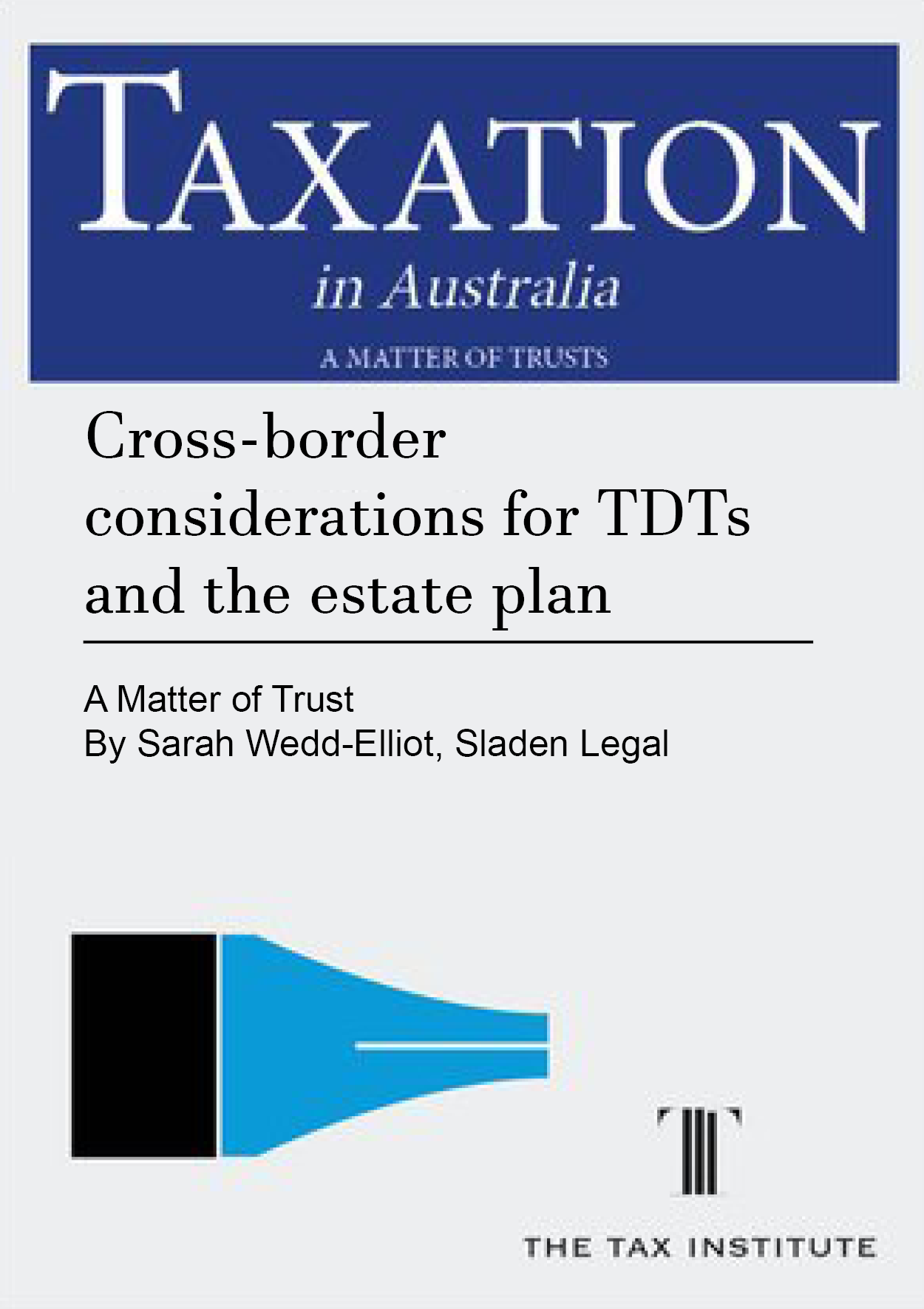UPEs and CGT: it’s not all about Bendel
MRE: multiple units and land consolidation
SMSFs and Incapacity: Navigating the Legal and Compliance Minefield
Session 11B: Tax effective death benefit planning
The powers of the court in varying trusts
The constitutional validity of the FTDT
All Things Being Equal in the Estate Plan – Then There’s the Tax
With the best of intentions an estate plan often sets out to treat the beneficiaries on equal terms. However, it may not be until the estate is being administered that tax rears its head in some form or another so that one beneficiary’s share is diminished by the potential tax consequences attached to a certain asset including superannuation.
How Do You NALE NALI? Understanding Non-Arm’s Length Dealings in SMSFs
The Australian Taxation Office (ATO) has made it clear: when a self managed superannuation fund (SMSF) receives services or assets on non-commercial terms - or fails to incur necessary expenses - the result can be harsh. Non-arm’s length expenditure (NALE) can trigger nonarm’s length income (NALI), exposing the fund to significant tax consequences.
Division 7A and UPEs: only mostly dead
Family trust distribution tax
Unfair Contract Terms What we can learn from the decided cases
PPSA Update Recent case developments
CONCURRENT 5B The Right Fit: SMSFs vs. Alternative Investment Structures
SMSF internal disputes and how to resolve and avoid them
VRLT holiday home exemption extended to trusts
Trusts and NALI/NALE: part 1
Green Finance: An Australian Perspective
Changing directors: landholder duty trigger
SMSFs and NALE That Triggers NALI Let's Get Specific
Non-arm’s length income (NALI) has been a hot topic of discussion and debate in the SMSF industry in recent years, in particular since the ATO first released their draft ruling on non-arm’s length expenditure (NALE) in 2018 (and its subsequent iterations). Recently, the long debated amendments to NALE provisions were passed in Parliament and received Royal Assent in June 2024.





















